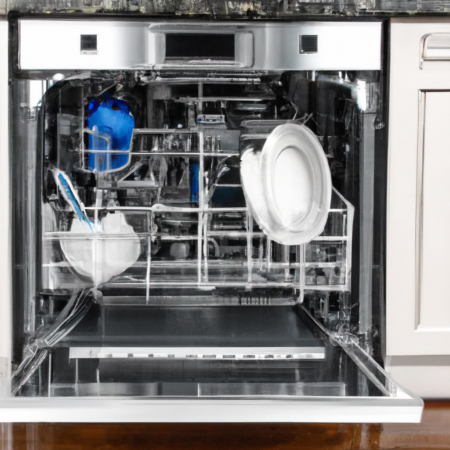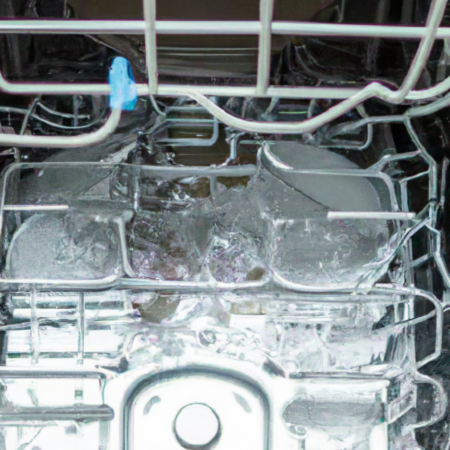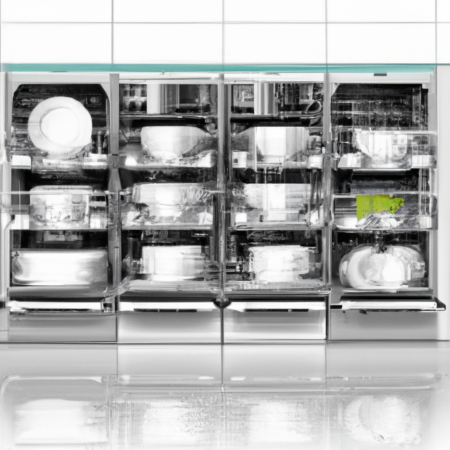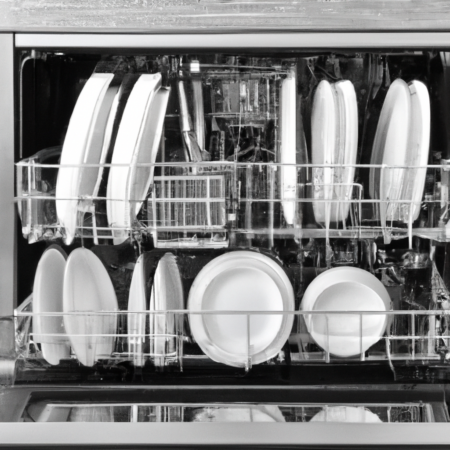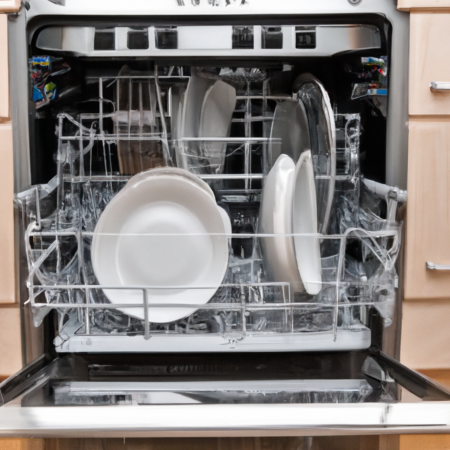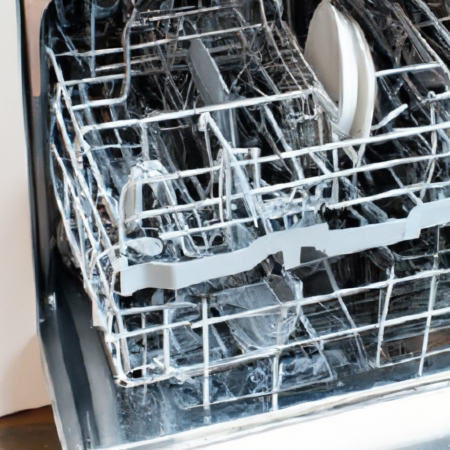It’s a question that many homeowners face: is it worth repairing a 10 year old dishwasher? As appliances age, it’s natural to question whether it’s more cost-effective to repair or replace. In this article, we’ll explore the factors to consider when making this decision, including the cost of repairs, the lifespan of the dishwasher, and the environmental impact. By the end, you’ll have a better understanding of whether investing in repairs is the right choice for you and your home.
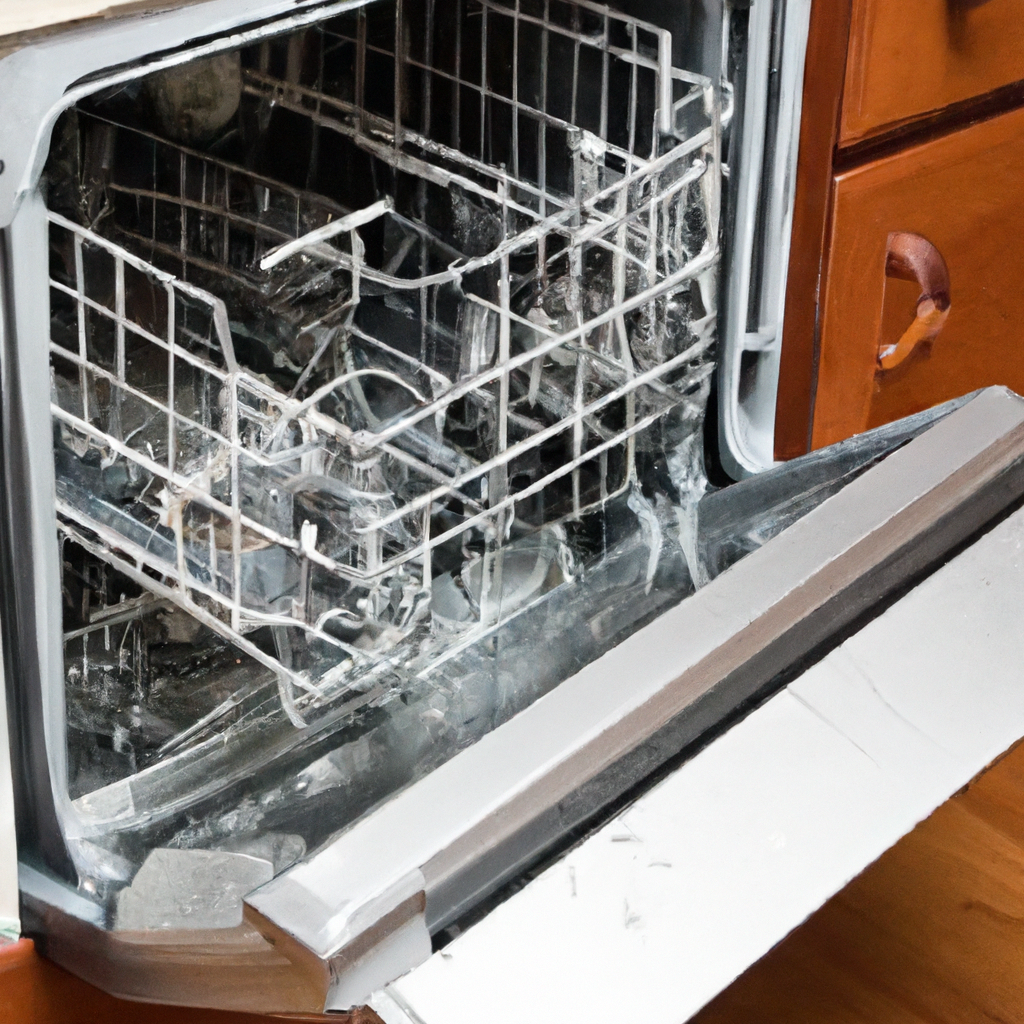
Understanding the Lifespan of a Dishwasher
Typical lifespan of a dishwasher
When considering whether to repair or replace your dishwasher, it is important to understand the typical lifespan of these appliances. On average, a dishwasher can last anywhere between 7 to 12 years. However, the actual lifespan can vary depending on factors such as usage frequency, maintenance, and the quality of the dishwasher itself.
Factors influencing dishwasher longevity
Several factors can significantly impact the lifespan of a dishwasher. Firstly, the quality and brand of the dishwasher play a crucial role. Higher-end models from reputable brands often come with better craftsmanship and materials, leading to a longer lifespan. Usage patterns and maintenance also play a crucial role. Overloading the dishwasher or neglecting regular cleaning and maintenance can shorten its lifespan.
Characterizing a 10-year old dishwasher
A 10-year old dishwasher can be considered as entering its senior years. It has surpassed the average lifespan of a dishwasher and may start showing signs of wear and tear. While some 10-year old dishwashers may still function well, others may begin to experience problems or inefficiencies. Assessing the current state of your dishwasher is essential in determining whether to repair or replace it.
Assessing the Current State of Your Dishwasher
Looking out for signs of malfunction
To determine the current state of your dishwasher, it is important to keep an eye out for signs of malfunction. These may include a decrease in cleaning efficiency, unusual noises during operation, leaks, or issues with draining. If you notice any of these signs, it is an indication that your dishwasher may need attention.
Problems common in older dishwashers
Older dishwashers are more prone to certain problems due to wear and tear. Common issues include clogged spray arms or filter, malfunctioning pumps or motors, and faulty electrical components. These problems can hinder the dishwasher’s performance and may require repairs or part replacements.
The severity of the damage or issue
When considering whether to repair or replace a dishwasher, it is important to assess the severity of the damage or issue. Some problems can be easily resolved with minor repairs, while others may require extensive repairs or replacement of major components. Evaluating the extent of the damage can help in weighing the cost-effectiveness of repair versus replacement.
Weighing the Cost of Repairs
Cost of common dishwasher repairs
Repair costs for dishwashers can vary depending on the specific problem and the cost of replacement parts. On average, common repairs such as fixing a leak or replacing a faulty pump can range from $100 to $500. However, it is important to note that more complex repairs or replacements of major components can be more expensive.
Potential extra costs in repairs
In some cases, repairing a dishwasher may come with additional costs. For example, if the dishwasher is an older model, finding replacement parts may be more challenging and expensive. Additionally, if the repair requires professional assistance, labor costs should also be considered. These extra costs should be factored into the decision-making process.
Comparing repair and replacement costs
When weighing the cost of repairs versus replacement, it is important to compare the potential costs of both options. Consider the estimated repair costs, the age of the dishwasher, and the potential lifespan after repair. Additionally, compare these costs with the price of a new dishwasher. If the repair costs are significant and the dishwasher is approaching its expected lifespan, replacing it may prove to be a more cost-effective option.
Evaluating the Efficiency of a 10-Year Old Dishwasher
Energy efficiency of newer models compared to older models
Advancements in technology have greatly improved the energy efficiency of newer dishwasher models. They are designed to use less water and energy while maintaining optimal performance. Compared to a 10-year old dishwasher, a new model can offer significant energy savings, which can translate to lower utility bills over time.
Water efficiency: Old vs New
Water efficiency is another crucial aspect to consider when evaluating a dishwasher. Older models typically use more water per cycle, which can contribute to higher water bills. Newer models incorporate advanced water-saving features, such as sensors and improved spray arm designs, to significantly reduce water consumption during each cycle.
Impact of efficiency on your utility bill
The efficiency of a dishwasher can have a considerable impact on your utility bills. Utilizing a newer, more efficient dishwasher can help reduce energy and water consumption, ultimately saving you money in the long run. While repairing an older dishwasher may temporarily address performance issues, it may not provide the same energy and water savings as a newer model.
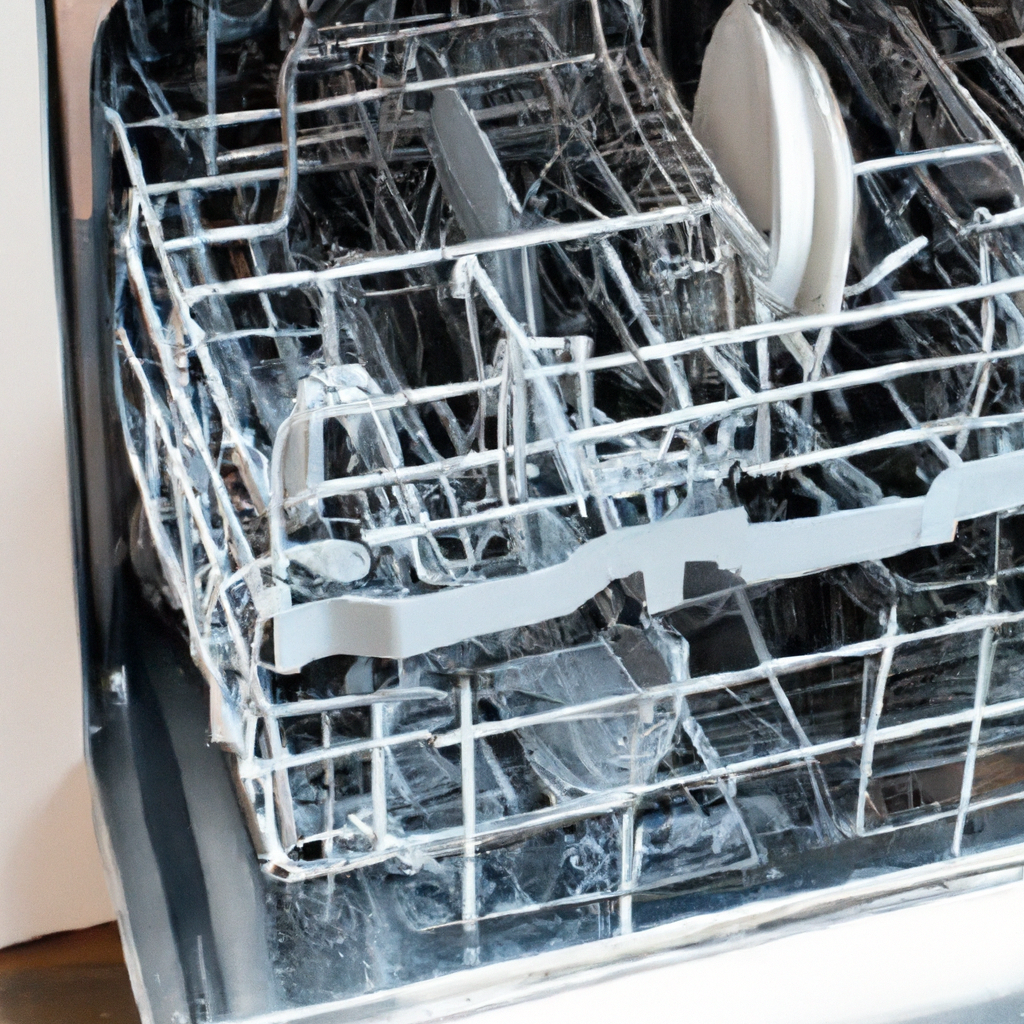
Considering the Environmental Impact
Waste production in replacing a dishwasher
Replacing a dishwasher entails waste production, including disposing of the old dishwasher and packaging materials from the new appliance. If not handled properly, this waste can contribute to environmental pollution. It is important to consider proper disposal and recycling options to minimize the environmental impact when replacing a dishwasher.
Environmental impact of manufacturing a new dishwasher
The manufacturing process of a new dishwasher involves the extraction of raw materials and energy consumption, which can have a significant environmental impact. The production of appliances contributes to carbon emissions, deforestation, and other ecological issues. Considering the environmental repercussions of manufacturing a new dishwasher is crucial in making an informed decision.
Recycling options for old dishwashers
To reduce environmental impact, recycling old dishwashers is highly recommended. Many municipalities offer recycling programs specifically for appliances, ensuring that they are disposed of in an environmentally-friendly manner. Additionally, some manufacturers may offer take-back programs or incentives to encourage proper recycling of their products.
Features and Functionality: Old vs New
Technological advancements in newer models
Newer dishwasher models often come equipped with advanced features and technologies that enhance their performance and convenience. These advancements may include adjustable racks, specialized wash cycles, soil sensors, and even Wi-Fi connectivity for remote control and monitoring. Assessing these features can help determine if the additional functionality of a new dishwasher is desirable for your needs.
Comparing the functionality and features
When evaluating the functionality and features of an older dishwasher versus a new one, it is important to consider your specific requirements. Assess whether the current dishwasher meets your needs and if the added features of a new model would significantly improve your experience. Determine whether the cost of these additional features justifies the investment.
How the functionality may affect your decision
The functionality of a dishwasher can influence your decision to repair or replace. If your current dishwasher lacks essential features, such as adjustable racks or effective cleaning cycles, you may want to consider upgrading to a newer model. However, if the functionality of your current appliance suits your needs, repairing it may be a more reasonable option.
The Impact on Home Value
The effect of appliance quality on real estate evaluations
The quality and condition of major appliances, including dishwashers, can impact the value of your home. A well-maintained and modern dishwasher can enhance the appeal and perceived value of your kitchen, making it more attractive to potential buyers. On the other hand, an old or malfunctioning dishwasher may be seen as a negative factor during real estate evaluations.
Considerations if planning to sell the home in the near future
If you are planning to sell your home in the near future, the condition of your dishwasher becomes particularly important. A dysfunctional or outdated dishwasher can deter potential buyers or negatively affect the perceived value of your home. Depending on the severity of the dishwasher’s issues, repairing or replacing it may become a necessary step to maximize the value of your property.
Perceptions of potential buyers
Potential buyers often seek updated and functional appliances when considering a home purchase. An old dishwasher may create doubts about the overall maintenance and condition of the home. Conversely, a brand new or recently repaired dishwasher can create a positive impression and increase the attractiveness of your home in the eyes of potential buyers.
Understanding the Repair Process
Typical process involved in dishwasher repair
Dishwasher repair generally involves a few key steps. First, the technician will diagnose the problem by inspecting the dishwasher and running tests if necessary. Once the issue is identified, the technician will recommend the required repairs or part replacements. Then, the repairs will be carried out, which may involve disassembling parts, replacing components, and reassembling the dishwasher. Finally, a thorough test will be conducted to ensure that the dishwasher is functioning properly.
Duration of the repair job
The duration of a dishwasher repair job can vary depending on the complexity of the problem and the availability of replacement parts. Minor repairs can be completed within a few hours, while more extensive repairs may take several days. It is advisable to consult with the technician about the estimated duration of the repair in order to plan accordingly.
Possible interruptions to daily routine
During the repair process, it is important to consider possible interruptions to your daily routine. The dishwasher will be out of commission, requiring you to manually wash dishes or make alternative arrangements. Depending on the scope of the repair, you may need to adjust your meal planning and washing schedule. Discussing the expected timeline and potential inconveniences with the technician can help in managing your expectations.
Weighing the Emotional Attachment and Sentimental Value
Personal connection and feelings towards your appliance
Over time, a sense of attachment and sentimentality may develop towards certain appliances, including your dishwasher. This emotional connection can make it challenging to make a practical decision about repair or replacement. Consider your personal attachment to the dishwasher and how it may influence your decision-making process.
Impact of change on your daily routine
Repairing or replacing a dishwasher can bring about a change to your daily routine. Familiarity with the current dishwasher’s operation and maintenance requirements may make you lean towards repairing it. On the other hand, opting for a newer model with advanced features may require adjusting your habits and learning new functionalities. Reflect on the potential impact of change on your daily routine before making a decision.
The aspect of change and adjustment
Change can be both exciting and challenging. While repairing an old dishwasher may maintain the status quo, replacing it with a new model brings the opportunity for improved functionality and convenience. Consider your comfort level with change and whether the benefits of embracing new technology and features outweigh the attachment to your current dishwasher.
Drawing the Final Verdict
The pros and cons of repairing
Repairing a 10-year old dishwasher has its pros and cons. On the positive side, repairs are typically more cost-effective in the short term, especially if the issue is minor. Repairing also allows you to maintain the familiarity of your current appliance and potentially extend its lifespan. However, repairs may not address underlying issues, and there is a risk of further malfunctions in the future.
The pros and cons of replacing
Replacing a 10-year old dishwasher also comes with advantages and disadvantages. A new dishwasher offers the latest technological advancements, improved energy and water efficiency, and enhanced functionality. It eliminates the potential for recurring repairs and can even increase the value of your home. However, the upfront cost of a new dishwasher can be significant, and it requires a willingness to adjust to a different appliance.
Revisiting the question: Is it worth repairing a 10-year old dishwasher?
After considering all the factors discussed, it is time to revisit the initial question. The decision of whether to repair or replace a 10-year old dishwasher depends on individual circumstances and preferences. If the repair costs are reasonable, the dishwasher still has some lifespan left, and the repairs address the underlying issues, repairing may be worth it. However, if the repair costs are high, the dishwasher is showing multiple signs of malfunction, or energy and water efficiency are important to you, replacing may be the more prudent choice.
Making the final decision based on individual circumstances and preferences
Ultimately, the final decision to repair or replace a 10-year old dishwasher boils down to your unique circumstances and preferences. Consider factors such as the current condition of your dishwasher, the estimated repair costs, the benefits of a new appliance, and your long-term plans for the home. Assess your budget, energy efficiency priorities, and attachment to the current appliance. By carefully evaluating these factors, you can make an informed decision that best suits your needs and circumstances.


